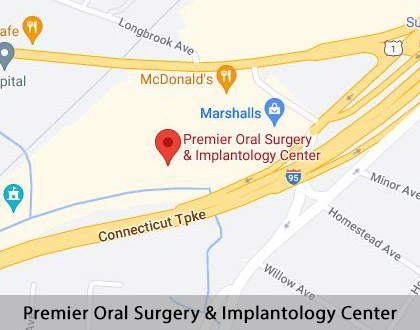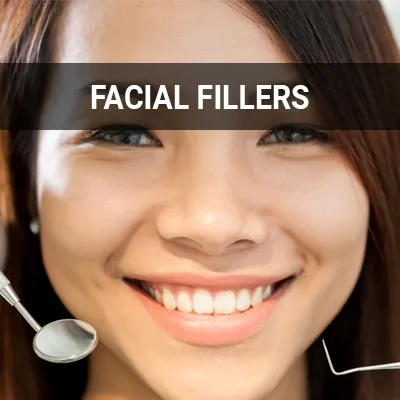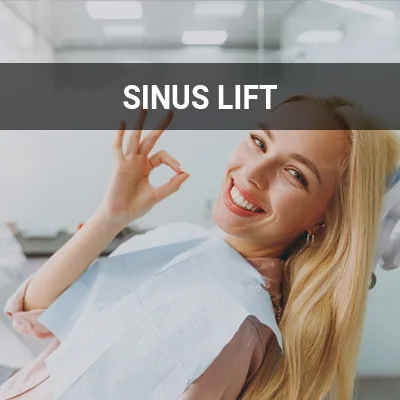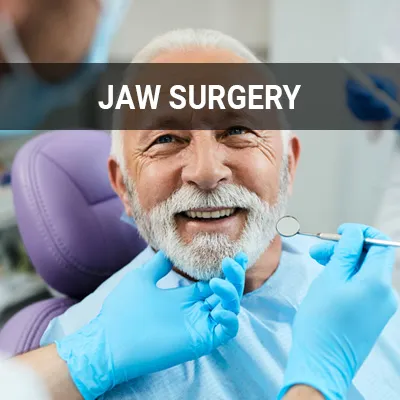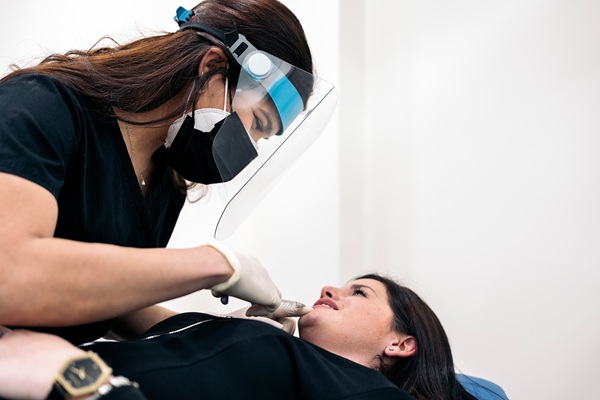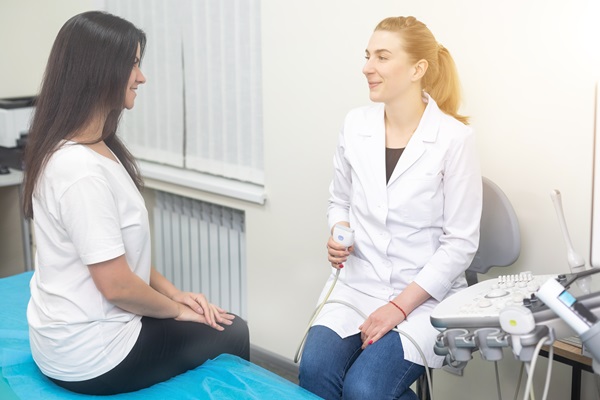Botox Stratford, CT
We provide Botox® to offer relief, enhance physical appearance, and improve oral health in many cases. Botox is considered an outpatient procedure in which the patient will be able to return home immediately after, without the need for any anesthetic. Non-invasive procedures are on the rise as people are looking to enhance their appearance or improve their oral structures. Along with that, Botox softens wrinkles and fine lines while also helping to relieve some forms of oral pain like TMJ and bruxism discomfort.
Botox treatment is available at Premier Oral Surgery & Implantology Center in Stratford and the surrounding area. Our oral surgeon provides safe and easy Botox treatment in our office. Call us at (203) 760-0190 for a consultation and learn what treatment option is right for you.
Understanding What Botox Is
Botox® is an injectable treatment made from the Botulinum toxin that the bacterium Clostridium botulinum produces. Botox is a neurotoxin that targets the nervous system and disrupts the nerve signaling processes that cause muscle contraction. Without this muscle contraction, the muscles are less stiff. Medical professionals inject the drug into the face to paralyze or weaken the muscles and block nerves.
Although the Botulinum toxin is dangerous by itself and without the aid of a licensed medical professional, Botox is safe and has few side effects when administered by a professional in a therapeutic context. Manufacturers use small doses of the Botulinum toxin to make Botox before injecting it into the skin to treat various conditions. To administer this treatment, our oral surgeon uses a mixture of diluted Botulinum toxin powder with saline, injecting it into the neuromuscular tissue. A study in the Clinical, Cosmetic and Investigational Dermatology Journal found that the injection can help relax and soften wrinkles and reduce the appearance of fine lines.
“Botox® is an injectable treatment made from the Botulinum toxin that the bacterium Clostridium botulinum produces.”
Determining Botox Candidacy
Botox is an excellent option for those who want an effective yet minimally invasive oral health treatment. This popular treatment has high patient satisfaction rates in enhancing facial appearance, improving oral structures, and reducing signs of aging. Botox is low-risk yet effective and does not involve recovery downtime like cosmetic surgery.
According to the American Society of Plastic Surgeons, 7.23 million Botox procedures were performed in 2017. Botox may be the right treatment for patients who first start to notice moderate lines on the face, typically after age 30 or so. However, everyone's facial lines form differently due to a combination of factors, including genetics and the environment. Our oral surgeon will determine if the patient is a candidate for Botox treatment.
Patients should be healthy and nonpregnant or breastfeeding. People with allergies to any of the ingredients, muscle or nerve conditions, or active infections may not be good candidates for this treatment.
“Botox is low-risk yet effective and does not involve recovery downtime like cosmetic surgery.”
Cosmetic and Medical Usage of Botox
Depending on the patient’s needs, Botox can help with either cosmetic or medical purposes. Botox injections are one of the most popular cosmetic procedures in the nation. Injections can reduce wrinkles around the eyes and mouth, on the forehead and chin, and between the eyebrows.
Medical professionals also use Botox to treat some medical conditions. In particular, injections can treat conditions that affect the neuromuscular system. The FDA has approved Botox treatment for conditions like chronic migraines, eyelid spasms, hyperhidrosis, and cervical dystonia. Botox in oral surgery can help with oral health conditions such as TMJ and Bruxism. Our oral surgeon can help determine if a patient is a candidate for Botox during a consultation.
“The FDA has approved Botox treatment for conditions like chronic migraines, eyelid spasms, hyperhidrosis, and cervical dystonia.”
Check out what others are saying about our dental services on Yelp: Botox in Stratford, CT
The Botox Injection Process
Individuals commonly get Botox to target forehead lines, crow's feet, and frown lines around the mouth. During the procedure, our oral oral surgeon will choose several injection sites on the face to inject using a small needle. Injections take about 15 to 30 minutes to administer in one appointment. Some swelling, redness, and bruising are normal after the appointment. Botox treatment requires little recovery, allowing most patients to return to their routine immediately.
In some cases, the results of Botox are fairly quick, with clinical effects appearing in as little as one to four days after injection. A few days after the injections, patients can see a smoother facial appearance, and any bruising or swelling should disappear. The results will last three to 12 months, depending on the type of treatment the patient received. Since this is a temporary treatment, Botox® starts to lose effect after four to six months, and wrinkles and fine lines will return. Scheduling top-up appointments at around four months keeps the face looking refreshed.
“The study above also found that the results of Botox are quick, with clinical effects appearing one to four days after injection.”
Questions Answered on This Page
Q. Who is a good candidate for Botox?
Q. What are some cosmetic and medical uses of Botox?
Q. What is the process like when getting Botox?
Q. What is the recovery period like?
People Also Ask
Q. What is the difference between PRF and PRP treatment?
Q. What is sinus lift surgery? Who benefits from sinus lift surgery?
The Recovery Period
The effects of Botox treatment can last up to 6 months, depending on the patient’s case and maintenance. Although there is no recovery time for Botox treatments, and patients may resume normal activities after the procedure, it is a good idea to understand safe practices to attain maximum results. Our oral surgeon may also recommend steps to help benefit patients during the recovery period.
Upon completion of Botox treatment, patients should refrain from rubbing or itching the injected area for at least 4 hours. In addition, they should not exercise or move vigorously for 24 hours and keep their head upright for at least the first 4 hours. Individualized instructions will be given to each patient promptly after treatment.
“The effects of Botox treatment can last up to 6 months, depending on the patient’s case and maintenance.”
Frequently Asked Questions
Q. How much does Botox cost?
A. Botox is one of the more affordable cosmetic procedures available. Cost varies depending on how many injections and the dosage. Scheduling a consultation with our team will allow our oral surgeon to determine the right treatment plan for you. Patients should also make sure to contact their insurance provider to ask about coverage.
Q. Will I feel pain with Botox?
A. Most patients will not feel much more than a little discomfort during the injections. However, there may be a small pinch where the injection occurs. The use of a topical cream or ice pack can reduce this discomfort.
Q. How often should I get Botox?
A. For cosmetic treatment, patients should get Botox treatment approximately every three to four months. Over time, the muscles may be able to go longer than four months between treatments. Some patients schedule their treatments every six months.
Q. Will my results look overdone or unnatural?
A. Botox results are technique-sensitive, so it is essential to choose an oral surgeon with experience and skill in administering this treatment. It is important to research the procedure and consult trained professionals. Our team will work with you to find the proper dosage and treatment plan for you.
Q. What areas do doctors treat with Botox?
A. According to the American Academy of Facial Esthetics, there are approximately 10 different areas where practitioners inject Botox. For example, doctors may inject into the muscle above the brow, the space between the brows, outside of the eye area, and other facial muscles to reduce wrinkles. They may also use it in the armpits, palms, and feet to treat excessive sweating.
Q. What happens when I stop Botox?
A. Botox may also help prevent new wrinkles from forming because of how it affects the facial muscles. However, if patients choose to stop regular injections, the drug will slowly wear off, and the skin will return to the way it was. Stopping treatment will not make wrinkles worse.
Start Feeling Better – Visit Us Today
By visiting us as soon as possible, our team can help get you the professional treatment you need. Instead of waiting around and allowing the symptoms to get worse, we can provide you with treatment options.
Call Us Today
Find out why so many patients love this convenient and fast treatment. Call us at 203-760-0190 today to learn more about your Botox treatment options or to schedule an appointment.
Helpful Related Links
- American Dental Association (ADA). Glossary of Dental Clinical Terms. 2023
- American Academy of Cosmetic Dentistry® (AACD). Home Page. 2023
- American Academy of Maxillofacial Prosthetics. American Academy of Maxillofacial Prosthetics. 2023
- American Association of Oral and Maxillofacial Surgeons. American Association of Oral and Maxillofacial Surgeons. 2023
- American College of Oral and Maxillofacial Surgery. American College of Oral and Maxillofacial Surgery. 2023
- National Cancer Institute (NCI). National Cancer Institute (NCI). 2023
- WebMD. WebMD’s Oral Care Guide. 2023
About our business and website security
- Premier Oral Surgery & Implantology Center was established in 2018.
- We accept the following payment methods: American Express, Cash, Discover, MasterCard, and Visa
- We serve patients from the following counties: Fairfield County
- We serve patients from the following cities: Stratford, Bridgeport, Milford, Trumbull, Orange, Fairfield, Easton, and Shelton
- Norton Safe Web. View Details
- Trend Micro Site Safety Center. View Details
Back to top of Botox

